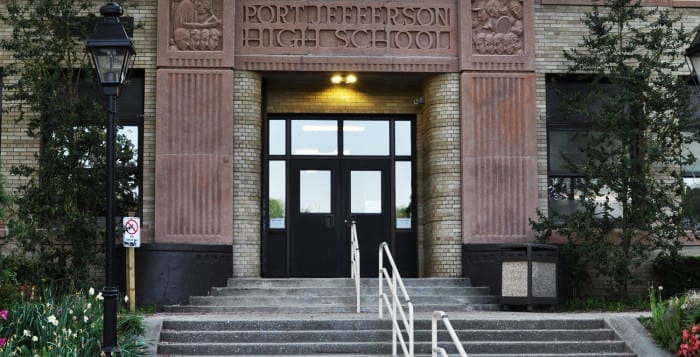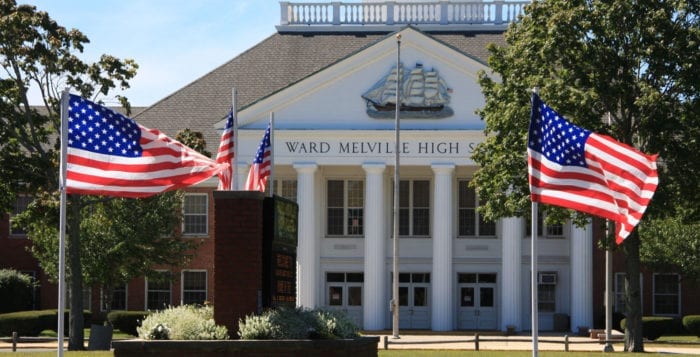Mount Sinai School District
With a vote of 1059 to 322, the Mount Sinai School district convincingly passed its $61,009,770 budget, a 1.34 percent increase from last year.
In addition to the budget, the public voted 1,141 to 228 to set a capital reserve of $850,000. Including the $750,000 in funds put last year in capital reserve, the district will have $1.6 million for future capital projects.
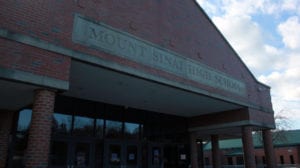 Superintendent Gordon Brosdal and the board are proposing to use $1.5 million for two projects: the cost of another partial repair of the high school’s roof and to replace the middle school’s HVAC system. The high school roof repair would cost $850,000 and the HVAC replacement would cost $650,000. The remaining $100,000 would be saved for future projects.
Superintendent Gordon Brosdal and the board are proposing to use $1.5 million for two projects: the cost of another partial repair of the high school’s roof and to replace the middle school’s HVAC system. The high school roof repair would cost $850,000 and the HVAC replacement would cost $650,000. The remaining $100,000 would be saved for future projects.
“I feel much better that the turnout [this year] beats the 960 from last year,” Brosdal said. “You can’t assume [the budget] is always going to pass, I was concerned about the bond.”
Brosdal said he is hopeful that the voter turnout is on the upswing.
“We got over 1,300 voters this year, maybe we’ll get 1,400 or more next year,” he said.
With five candidates running for three open trustee seats, board member Anne Marie Henninger, who replaced trustee Michael Riggio, secured re-election to the board with the highest vote tally of 790. Challengers Lisa Pfeffer and Robert Pignatello claimed the other two available seats with 713 and 662 votes, respectively. The race for the last seat was a close one with challenger Chris Quartarone coming up short with 655 votes. Longtime board member Lynn Jordan failed to secure re-election this year with 628 votes.
“I’m very humbled,” Henninger said. “I had a lot of people pulling for me and I’m excited to get back to work, we have a lot to do.”
Pignatello said he was happy with the voter turnout this year for the budget.
“I’m looking forward to working together with the board and do what’s best for the children and the community,” he said.
Pfeffer said she is looking forward to serving on the board and doing what’s best for
the community.
“I’m excited to be working with this group on the board and I’m just going to hit the ground running,” she said.
Miller Place School District
With the Miller Place School District proposing a $73,958,607 budget, an increase of more than $1.2 million from the current year’s amount, residents overwhelming passed this year’s budget 610 to 173.
This year’s total tax levy amount is $46,928,588, an increase of $638,534 from last year and sticking directly to a 1.38 percent tax levy cap.
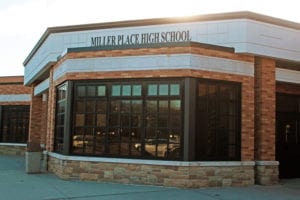 “On behalf of the board of education and district administration, I would like to thank the entire Miller Place-Sound Beach community for their support of the 2019-2020 school budget,” said Superintendent Marianne Cartisano.
“On behalf of the board of education and district administration, I would like to thank the entire Miller Place-Sound Beach community for their support of the 2019-2020 school budget,” said Superintendent Marianne Cartisano.
Two seats were open for this year’s Miller Place school board election, and two incumbents ran unopposed. Both seats will be up for three-year terms starting July 1, 2019 through June 30, 2022. Incumbents Johanna Testa, who this year served as the board president, and Noelle Dunlop secured their seats with 657 and 636 votes, respectively.
Testa said she was pleased that this year’s budget passed by 78 percent.
“I feel really excited and I’m looking forward to a third term and continuing to advocate for the community and district,” she said.
Rocky Point Union Free School District
Rocky Point residents passed the school district’s $86,743,446 with a vote of 703 to 213. The new budget is a slight increase of 0.71 percent from last year’s amount but a $1.3 million increase in the tax levy.
“The district is once again extremely grateful to the community for its overwhelming support of the proposed budget,” Superintendent Michael Ring said. “This plan is one that will enable Rocky Point to continue to provide enriching academic opportunities for all students and a co-curricular program geared toward supporting student interests.”
Debt services will decrease in the 2019-20 school year as a result of a completion of payments of two bonds that date back to 1995 and 2000. The bond payments will expire on June 30 and will save the district $451,751.
 Employees Retirement System rates will decrease to 13.1 percent, which will most likely save the district more than $159,000. Teachers Retirement System rates are expected to decrease as well to 9 percent and would save the district close to $582,000.
Employees Retirement System rates will decrease to 13.1 percent, which will most likely save the district more than $159,000. Teachers Retirement System rates are expected to decrease as well to 9 percent and would save the district close to $582,000.
Rocky Point had two open trustee seats this year. Board member Scott Reh, who was sworn in to the board Jan. 14 to fill the seat vacated by Joseph Coniglione earlier this school year, decided not to run for re-election. Veteran board member Susan Sullivan nailed down a three-year term with 618 votes. Challenger Jessica Ward secured the one-year term seat with 551 votes. Michael Lisa came up short with 410 votes.
“I’m very excited to be on the board and I’m looking forward to working closely with our new superintendent,” Ward said.
Shoreham-Wading River school district
Shoreham-Wading River school district residents resoundingly decided to pass this year’s $75,952,416 budget with a 1,129 to 329. The new budget is a $1,176,344 increase from last year’s figure.
The district said the new budget will cover the implementation of an integrated video, door access and alarm management system as well as additional video cameras and perimeter fencing. Night gates will be installed at the Alfred G. Prodell Middle School, Miller Avenue Elementary School and Wading River Elementary School. Also, the budget will cover the purchase of a new high school auditorium bandshell and supplies/materials for the middle school greenhouse and new electives for high schoolers.
 “I am very grateful to the Shoreham-Wading River community for their ongoing support of our students and school district,” Superintendent Gerard Poole said. “Our students have a longstanding tradition of achieving academic, artistic and athletic success. This approved budget will allow us to continue to build upon that legacy while maintaining our commitment to fiscal responsibility.”
“I am very grateful to the Shoreham-Wading River community for their ongoing support of our students and school district,” Superintendent Gerard Poole said. “Our students have a longstanding tradition of achieving academic, artistic and athletic success. This approved budget will allow us to continue to build upon that legacy while maintaining our commitment to fiscal responsibility.”
Six people ran for Shoreham-Wading River school board to fill three seats. This comes after trustee Erin Hunt vacated her position in March and after current trustee Kimberly Roff said she will not run for re-election.
Incumbent board president Michael Lewis was re-elected to a one-year term with 652 votes, while challenger Meghan Tepfenhardt received the highest votes with 744 and secured a three-year term. Thomas Sheridan also secured a three-year trustee seat with 691. Challengers who did not win election were Edward Granshaw who received 471 votes, Jennifer Kitchen with 568 and Bill McGarth with 603.


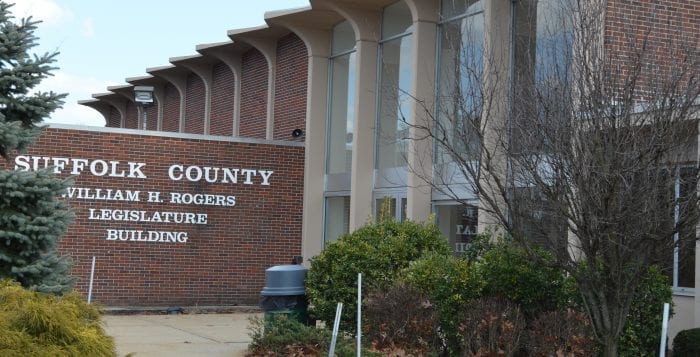


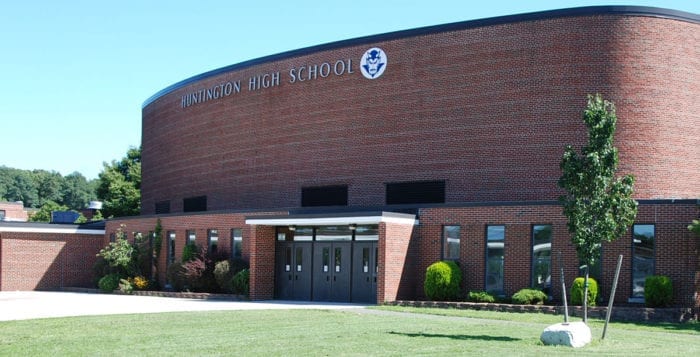
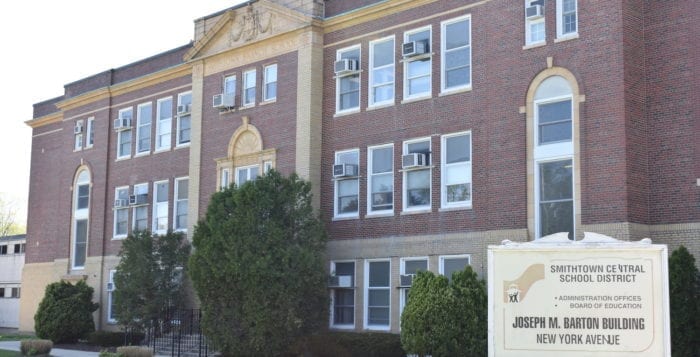
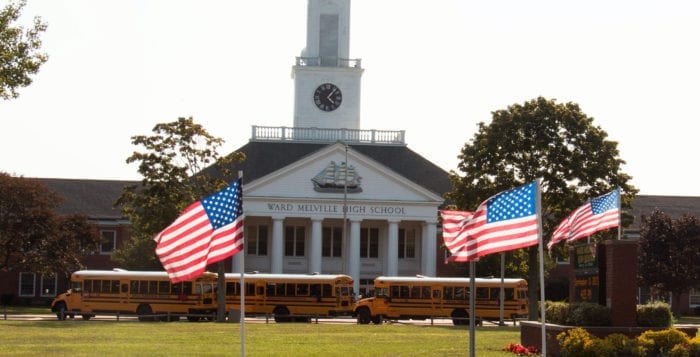
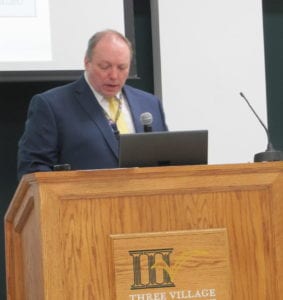
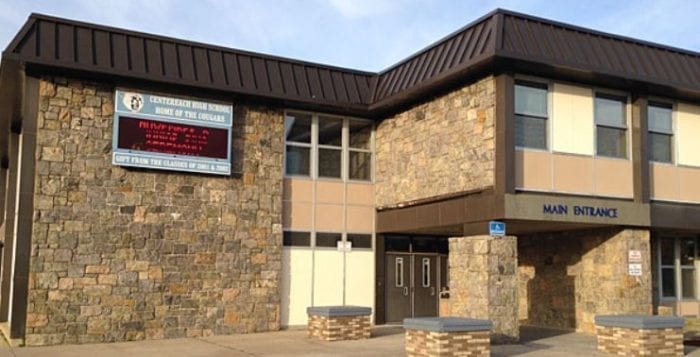
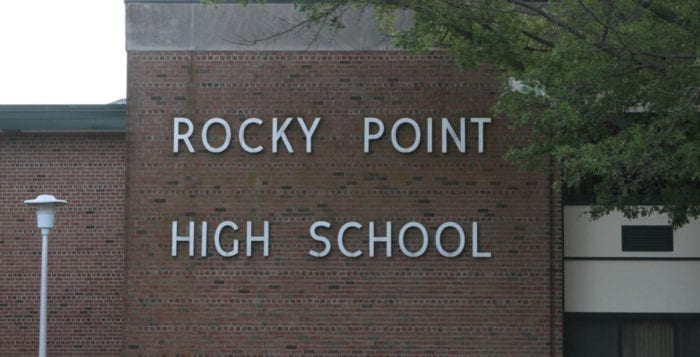
 Superintendent Gordon Brosdal and the board are proposing to use $1.5 million for two projects: the cost of another partial repair of the high school’s roof and to replace the middle school’s HVAC system. The high school roof repair would cost $850,000 and the HVAC replacement would cost $650,000. The remaining $100,000 would be saved for future projects.
Superintendent Gordon Brosdal and the board are proposing to use $1.5 million for two projects: the cost of another partial repair of the high school’s roof and to replace the middle school’s HVAC system. The high school roof repair would cost $850,000 and the HVAC replacement would cost $650,000. The remaining $100,000 would be saved for future projects. “On behalf of the board of education and district administration, I would like to thank the entire Miller Place-Sound Beach community for their support of the 2019-2020 school budget,” said Superintendent Marianne Cartisano.
“On behalf of the board of education and district administration, I would like to thank the entire Miller Place-Sound Beach community for their support of the 2019-2020 school budget,” said Superintendent Marianne Cartisano. Employees Retirement System rates will decrease to 13.1 percent, which will most likely save the district more than $159,000. Teachers Retirement System rates are expected to decrease as well to 9 percent and would save the district close to $582,000.
Employees Retirement System rates will decrease to 13.1 percent, which will most likely save the district more than $159,000. Teachers Retirement System rates are expected to decrease as well to 9 percent and would save the district close to $582,000. “I am very grateful to the Shoreham-Wading River community for their ongoing support of our students and school district,” Superintendent Gerard Poole said. “Our students have a longstanding tradition of achieving academic, artistic and athletic success. This approved budget will allow us to continue to build upon that legacy while maintaining our commitment to fiscal responsibility.”
“I am very grateful to the Shoreham-Wading River community for their ongoing support of our students and school district,” Superintendent Gerard Poole said. “Our students have a longstanding tradition of achieving academic, artistic and athletic success. This approved budget will allow us to continue to build upon that legacy while maintaining our commitment to fiscal responsibility.”